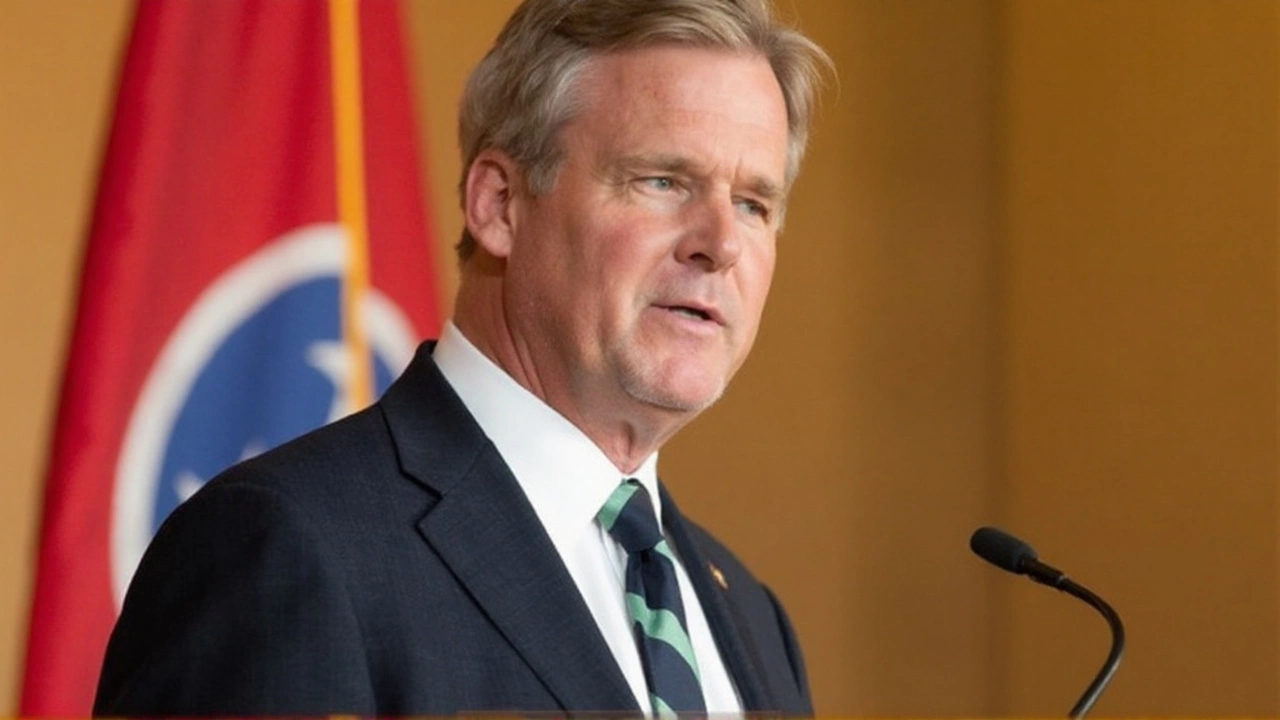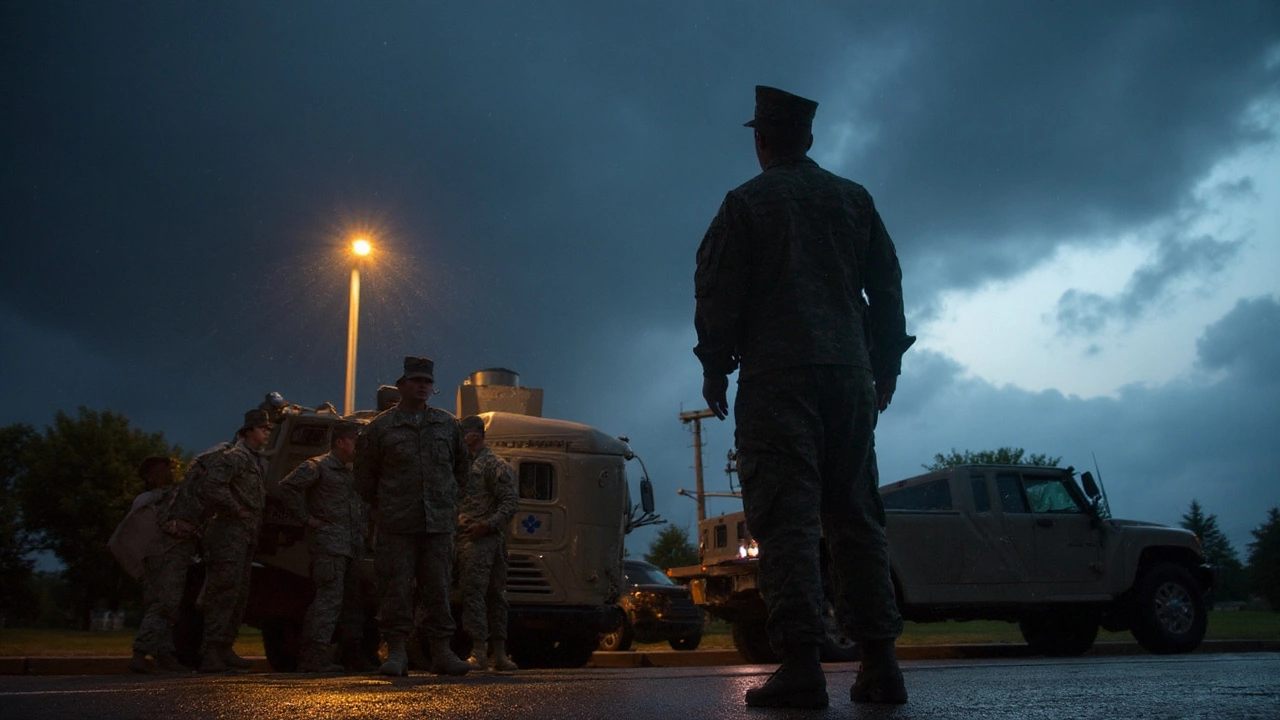Trump backs a deployment as Tennessee recalculates
President Donald Trump says he’s sending the National Guard to Memphis to help fight crime, a high-profile move that collides with a key fact state leaders flagged just weeks ago: reported crime in the city is down 15% year over year. The White House push landed fast and loud on Friday during an interview on Fox & Friends, and it put Tennessee officials on the clock to answer the only questions that matter now—how many troops, doing what, under whose authority, and for how long?
In the interview, Trump called Memphis “deeply troubled” and said he plans to “fix that, just like we did in Washington,” signaling a package that could include federal agents, Guard units, and, if he deems it necessary, active-duty military assets. He also said the city’s Democratic mayor and Republican Governor Bill Lee support the idea, encouraging other local leaders nationwide to request similar help.
Governor Lee’s office responded on social media, saying he’ll meet with Trump to work out the details and thanking the president for “unwavering support.” That is a shift in tone from a month ago, when Lee told reporters there was no need to send the Guard, citing the 15% year-over-year drop in crime. He pointed to Tennessee’s own playbook—$150 million in intervention grant funds and a major expansion of state troopers in Memphis—as evidence the state had momentum.
Even this week, when Lee announced he was sending more state troopers to the city, he didn’t mention the Guard. He said “nothing is off the table,” but he framed that as an option, not a plan. Now it’s a plan, at least at the federal level, and the state is signaling it’s open to it—if it fits with what Memphis police and local leaders are already doing.
Reactions split along a familiar line. Republicans in Washington cheered the move. In Memphis, the tone was more careful. Local officials have emphasized that any outside help should keep city police in charge and be tightly coordinated, not layered on top. Some have floated a broader use of troops—helping with infrastructure fixes, lighting, and blight removal—to support safety without turning neighborhoods into staging grounds.

What this deployment could look like—and what we still don’t know
Washington, D.C., and Memphis are not the same problem set. In D.C., the federal government runs point. In Tennessee, the governor holds the keys. That matters because legal authority decides what troops can do. Under state control (often called Title 32 status), Guard members can assist police but usually do not act as primary law enforcement. Under federal control (Title 10), active-duty troops face strict limits on domestic policing because of the Posse Comitatus Act, unless the president invokes special powers like the Insurrection Act. Nothing in the public statements so far suggests the White House is aiming for that kind of step in Memphis.
So the most likely path is this: a state-controlled Guard mission that backs up local law enforcement rather than replaces it. Think perimeter security for major events, traffic control around hot spots, help guarding critical infrastructure, logistics support, and visibility patrols alongside police—tasks that free up sworn officers for investigations and targeted operations. If federal agencies join, they could focus on fugitive apprehensions, gun trafficking cases, and gang investigations, coordinated through joint task forces that already exist in the region.
Scope and duration will decide how visible this gets. A limited, 30-to-60-day mission that fields small, clearly identified teams is one thing. A broader deployment that puts troops at busy corridors for months is another. Memphis has seen stepped-up policing tactics before; residents know the difference between a short-term surge and a steady new normal.
Command and communications are another big piece. Lee says his office is in “constant communication” with the administration, and he emphasized that any Guard presence would be woven into current efforts. In practice, that usually means a joint operations center that includes Memphis Police Department, Shelby County Sheriff’s Office, the Tennessee Department of Safety and Homeland Security, and federal partners like the U.S. Marshals Service. Everyone needs the same radio plan, shared maps of priority areas, and clear rules for when Guard teams call for police and when they disengage.
Arrest authority is a frequent point of confusion. Guard members under state control can have limited law enforcement powers if the governor authorizes them and they are trained for that role, but departments typically keep sworn officers in the lead on stops, searches, and arrests. Expect training refreshers on de-escalation, crowd management, and use-of-force policies tailored to Memphis Police Department standards. Residents should also expect prominent identification on uniforms and vehicles so there’s no question who does what.
Money matters. If the mission is state-led, Tennessee may pick up a significant share of the tab unless there’s a federal reimbursement arrangement. Guard deployments come with overtime, lodging, fuel, and equipment costs, not to mention the impact on civilian employers when Guard members leave their day jobs. On the local side, police overtime and the cost of coordinating multi-agency teams adds up fast.
Then there’s the dashboard question: how to measure whether this works. Leaders love clean metrics—weekly violent crime totals, calls for service, response times, gun seizures, warrant arrests. Those numbers can move for many reasons. The 15% year-over-year drop the governor cited suggests the city was already trending in a better direction before a Guard presence. If crime dips again after troops arrive, credit will be contested. If it stalls or rises, so will the blame. The more helpful test might be targeted: Did shootings decline in specific hot spots where Guard-supported operations ran? Did police clear more major cases? Did response times improve during peak hours?
Community trust will shape the outcome. A visible troop presence can deter opportunistic crime, but it can also make daily life feel tense, especially for young people and families in neighborhoods that have seen heavy enforcement before. That’s where the state’s $150 million in intervention grants could do quiet work—funding outreach teams, youth programs, lighting and cameras, hospital-based violence interruption, and victim services that stabilize families after an incident. Operations can cool a block for a weekend; investments can keep it cool after the barricades are gone.
Politics is the backdrop, and no one is pretending otherwise. Trump framed the move as a direct answer to a “deeply troubled” city. Lee is walking a narrow path—supporting a federal push while sticking to his message that Tennessee’s strategy is working. Local leaders want help without losing control of the plan they’ve been running. The balance they strike in the next few days—mission scope, time limits, and who answers to whom—will tell you which of those priorities won out.
Here are the practical questions still on the table:
- Command: Will the Guard operate under state authority with Memphis Police in the lead, and how will that be spelled out in orders?
- Mission: What tasks will troops perform, and what will they explicitly avoid?
- Duration: Is this a short, targeted surge or an open-ended presence?
- Coverage: Which neighborhoods and corridors will see personnel, and at what times of day?
- Coordination: How will federal agents, troopers, and city police deconflict cases and share intelligence?
- Oversight: What complaint process, body-worn camera rules, and public reporting will apply to Guard-supported operations?
- Cost: Who pays, and will the state seek federal reimbursement?
Officials say they’re meeting to “work out the details.” Residents will want something more concrete than that: a start date, a map, a phone number for questions, and a promise that when the surge ends, the progress holds. Memphis leaders argue the city is on a path to greatness and not letting anything hold it back. If the deployment lands with a clear mission and a firm exit, it could help that claim. If not, the city could spend the fall debating a plan it never fully saw in writing.
